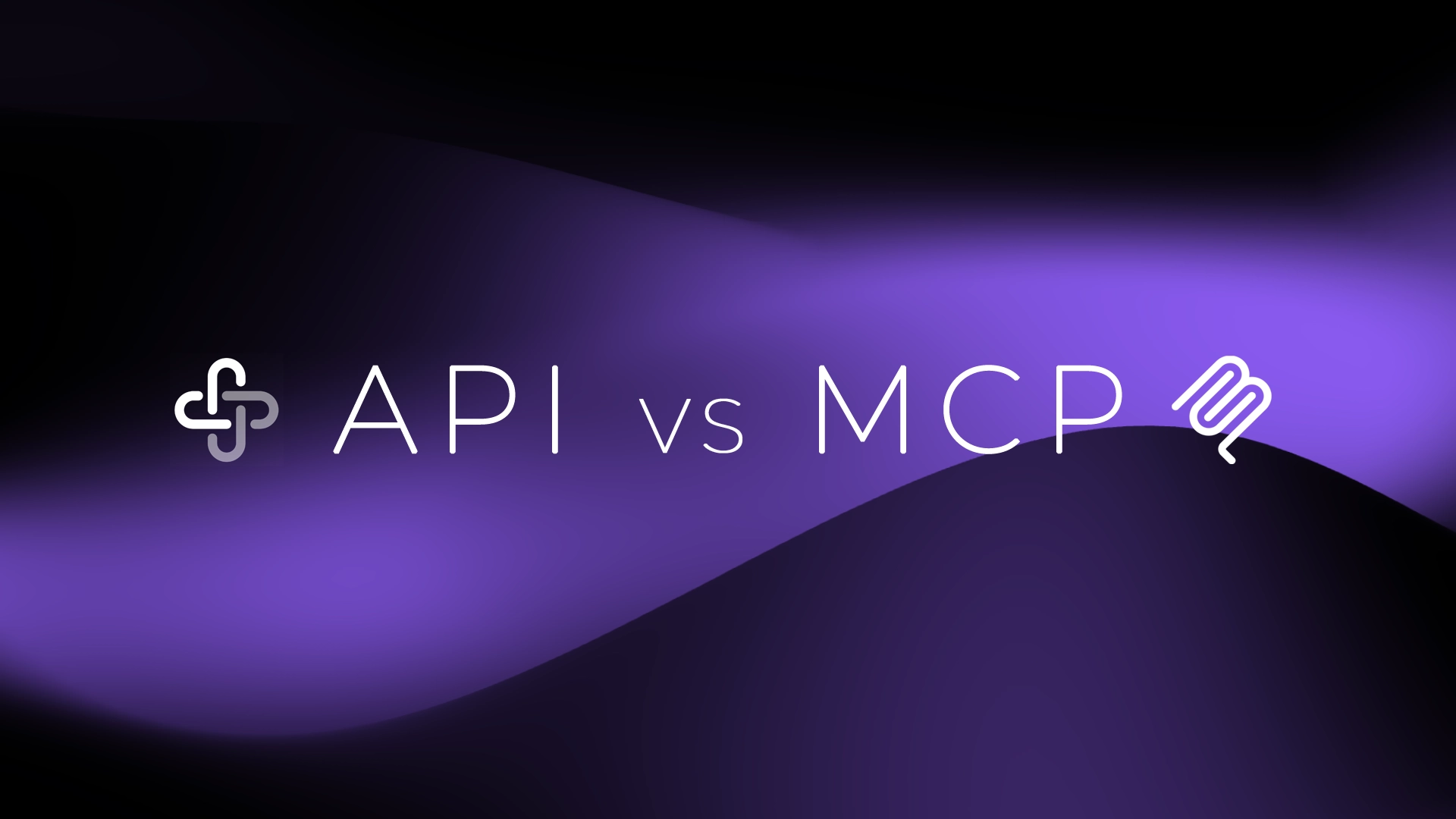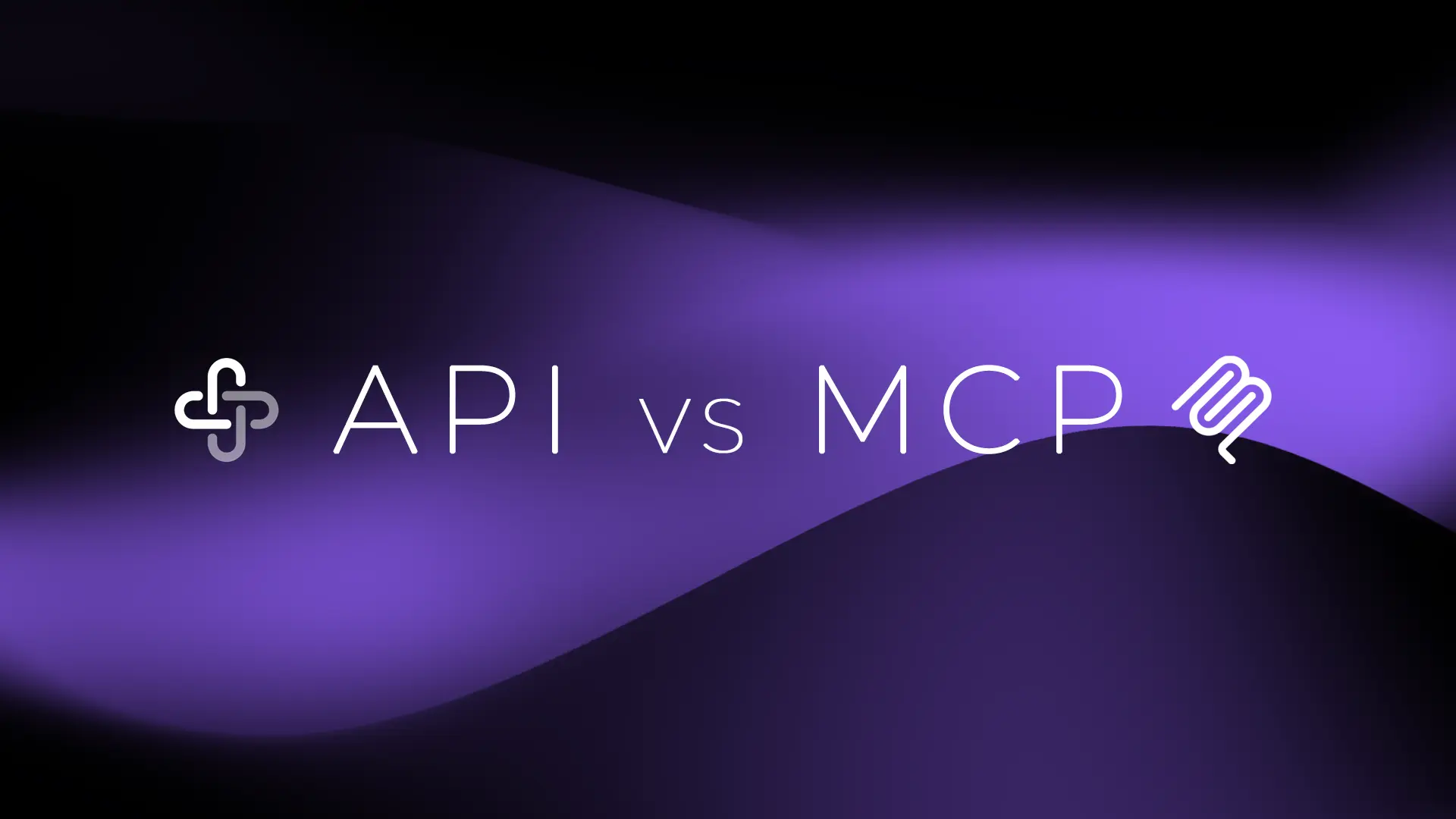

API vs MCP
I keep seeing this question everywhere: Why use MCP rather than just giving an LLM an OpenAPI spec and a single tool to make API requests?.
If you’re new to MCP, checkout my introductory article on MCP before diving into the differences between APIs and MCP servers.
Here’s my list of reasons that I regularly update:
-
Context: The
Cin MCP stands for Context. MCP servers provide context on each tool / resource they expose for the LLM to understand how to use them. Yes, some OpenAPI specs include good documentation, but many don’t. -
Cost: Have you seen an OpenAPI spec? They tend to be massive. Passing the entire spec to an LLM would be rather expensive. Some back-of-the-envelope math: MCP Fabric’s rather small OpenAPI spec is 20,000 tokens. At $3/million tokens for Claude 4, that’s $0.06 just to include the spec in the context window.
-
Simplicity & Determinism: MCP enforces a simple and unified structure for agents to use external tools. APIs are complicated: parameters can be placed in the path, query, headers, or body. With MCP, tools are all discovered in a standardized way. With an API spec, the LLM would be presented with an overwhelming number of options and may struggle to produce consistent results.
-
No Spec: A surprising number of APIs don’t actually have an OpenAPI spec. Why this is when they can be auto-generated is beyond me.
-
Additional Capabilities: While most current remote MCP servers are mostly just wrappers around existing APIs, the official MCP spec allows for more advanced capabilities that wouldn’t be possible with a simple rest API. For example, MCP resources allow for streaming real-time resource updates to the agent.
-
Beyond APIs: MCP isn’t limited to APIs - it supports arbitrary functions and can be used to integrate with countless systems. Think shell commands, database queries, file system operations, operating system integration. Microsoft just announced native support for MCP in Windows allowing windows apps to expose their functionality directly to agents.
-
Small Language Models: Many people see a future where every smart device has an NPU (Neural Processing Unit) running a SLM (Small Language Model). The small language model could then use MCP to interface with hardware on the device. For example, a car could use MCP to interface with the car’s sensors and controls.
-
Auth: Auth to APIs is complicated. Sure, an LLM could figure it out, but MCP provides a standardized way to handle this.
API -> MCP
If you’re looking to create an MCP server from an existing API, check out my API -> MCP article that covers the many options available to do so.
Additional Reading
Frank from Glama AI wrote an excellent MCP vs API article. He’s active on the MCP subreddits and must have seen many of the same questions I saw that prompted me to write this post. His article focuses more on the foundational differences, while mine focuses more on the real-world ramifications of these differences.
Conclusion
MCP and APIs do have some overlap, but MCP was designed to fill a different role. Ultimately, APIs were designed to be used by developers to connect systems together. MCP was designed to provide context and capabilities to agents.
← Back to blog